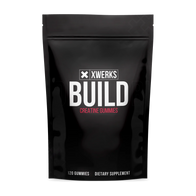Ashwagandha is an herb that has been used for centuries in Eastern medicine and has more recently gained the attention of Western medicine. It is commonly used in Ayurvedic medicine, which is the traditional system of the East and is used to treat an array of conditions from insomnia to stress to rheumatism and so much more.
According to the experts, the physiological effects of ashwagandha are connected. For example, when stress is reduced, cortisol (stress hormone) levels are also reduced, which means better control over your blood glucose.
In this article, we’ll look at 7 of the benefits associated with ashwagandha. However, first, we need to understand a little more about what ashwagandha is.
Ashwagandha Defined
Ashwagandha is an herb that is classified as an adaptogen. This means that it offers health benefits when ingested in its raw form or as teas, tinctures, supplements, or powders.
It is an herbal shrub whose berries and roots are used for medicinal properties. It is also referred to as Withania somnifera (its scientific name), winter cherry, or Indian ginseng.
7 Health Benefits Associated with Ashwagandha
Now that you understand what ashwagandha is, we can explore 7 of the health benefits that are believed to be associated with it. It’s important to note that the research continues to evolve as researchers study its effectiveness against a variety of problems.
The benefits listed below are backed by science- but again, research has only involved a small number of participants. We need more thorough research to confirm.
Increases Male Fertility and Testosterone Levels
There is also some research indicating that ashwagandha offers reproductive benefits for males. Ashwagandha has been shown to rebalance reproductive hormones in men, which improves sperm quality. At the end of one study, 14% of the female partners of the male participants became pregnant.
In another study related to stress, researchers discovered that ashwagandha increased testosterone levels in men but not women. Finally, in a study evaluating the effects of ashwagandha on muscle strength in men measured significant increases in testosterone.
Reduces Stress/Anxiety
One of the things that people associate most with ashwagandha is relieving stress and anxiety. There are many studies that prove that ashwagandha can significantly reduce stress and anxiety levels of study participants.
One study also indicated that ashwagandha can improve sleep quality. Participants in the study were able to sleep much better with the herb than with placebo doses.
Decreases Fat and Glucose in the Blood
A few of the studies indicate that ashwagandha reduces triglycerides- which is the most common form of fat in the blood- and glucose levels. One study compared the effectiveness of ashwagandha to lower blood sugar to that of type 2 diabetes medications.
Increases Muscle Size/Strength
Researchers continue to look at the efficacy of ashwagandha to increase muscle size and strength. In one study, participants taking an ashwagandha supplement experienced an increase in strength and speed. In another study, participants saw an increase in muscle power, along with reduced body fat and cholesterol levels when taking an ashwagandha supplement. Some of the participants did report improved sleep- but this study did not compare ashwagandha with a placebo.
Another study involving only male participants showed positive results from ashwagandha treatments, compared to the placebo group. The men receiving ashwagandha experienced substantial muscle size and strength gains, and a reduction in post-workout muscle damage and overall body fat.
Improves Female Sexual Function
There is at least one clinical study indicating that ashwagandha can be helpful for women who are experiencing sexual dysfunction. It is shown to improve lubrication, arousal, orgasm, and satisfaction. According to the participants, ashwagandha also improved the number of successful sexual encounters and reduced distress regarding their sexuality and sex lives.
Sharpens Memory and Focus
There is some indication that ashwagandha improves memory, cognition, and the ability to perform motor responses following instruction. There are several studies indicating that ashwagandha also improves reaction times of participants during psychomotor and cognition tests.
Another study showed that ashwagandha improved the attention spans of participants, as well as their general and immediate memory across several different tests.
Supports Heart Health
There are at least 2 studies on ashwagandha that have shown an increase in VO2 max levels. This is used to measure your cardiorespiratory endurance, that is how well your heart and lungs deliver oxygen to your muscles during physical activity. Therefore, higher VO2 max levels indicate you have a healthy heart that functions well.
That being said, this particular study included only healthy, athletic adults, so the results may not universally apply.
Risks/Side Effects Associated with Ashwagandha
According to experts, ashwagandha is generally safe and non-toxic. However, there are a few things you need to think about before you include it as part of your daily routine:
Are you taking other medications?
Before you add ashwagandha or any other supplement to your routine, it’s important to discuss it with your medical provider. If you are on certain prescription medications, there’s a chance that taking ashwagandha may increase or reduce their effects.
What other conditions should you consider?
If you are immunocompromised, pregnant, breastfeeding, have a thyroid condition, or will soon be going into surgery, ashwagandha may not be safe for you. In addition, if you are allergic to nightshades or have certain allergies to grasses, you may not tolerate ashwagandha very well. If these apply to you, speak with your medical provider to determine the safety of ashwagandha for you.
What is the best dosage?
According to the experts, your body may not absorb a full 300-milligram dose and larger doses may trigger unpleasant side effects, including diarrhea and/or vomiting. Instead, try smaller doses more frequently to benefit from the effects associated with ashwagandha.
Where did it come from?
When you are buying ashwagandha, be sure to take the time to find out where it came from, especially in the case of capsules. Ask a staff member at a supplement or natural food store for their recommendations. They have more experience than the average person. If you know someone that is using ashwagandha, ask them for their opinion. If you’re told that it doesn’t really matter what brand you choose, take the time to do your own research. Check the ingredient list for things like heavy metals, such as cadmium, arsenic, mercury, and lead. When you are exposed to these, your risk of damage to your reproductive organs, immune system, liver, central nervous system, and kidneys is increased.
Tips for Taking Ashwagandha
You can consume the roots and berries of the plant to benefit from the medicinal properties, but most people take it as a supplement, such as our ashwagandha gummies.
One way that you can introduce it into your diet is by drinking an ashwagandha tea. This will slowly get it into your system and will also improve your hydration, which is critical for your overall health.
If you prefer, you can be more creative and add the raw form or a powdered form directly to your food. For example, it can be mixed into overnight oats, nut butters, smoothies, or granola. However, avoid exposing it to high heat, as that will cancel out the therapeutic benefits and may possibly cause it to become carcinogenic. Keep the heat at medium or add it into your food toward the end of prep.






















